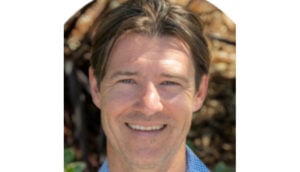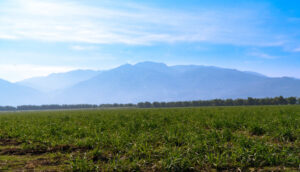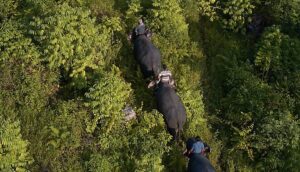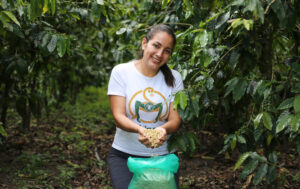Europe is home to 25.6 million forcibly displaced people, including 13.6 million refugees (1). With the intensification of climate change and the persistence of conflict and instability in the world, the number of refugees and forcibly displaced people is only going to grow.
The business case for integrating migrants more broadly into the global economy is also growing. One estimate suggests that the direct economic output of global migration (not just refugees) could more than double by 2050, to around $20 trillion a year (2).
The report “Turning Potential into Prosperity“ by Business Fights Poverty, written with support from Visa, highlights that refugee entrepreneurs in Europe regularly outpace nationals when it comes to setting up businesses. For example, 13% of refugees and migrants in France are self-employed, compared to only 6% of the French-born population (3). In Germany, a quarter of all refugees were entrepreneurs before arriving, and in the Netherlands (4), migrant entrepreneurs (15% of the population) start 36% of all companies (5).
Refugee entrepreneurs and employees often face a multitude of challenges when trying to set up a business or gain employment (indeed, many refugees have to start a business out of necessity, given the challenges of becoming employed). These include access to finance, regulatory barriers (many refugees can’t set up a business until their status is settled, and their qualifications are often not recognised), access to business and markets and access to social capital – the networks and contacts that make things happen.
Companies and investors are finding ways to disrupt or mitigate the challenges, and both reports highlight innovative approaches across a variety of sectors, including, for example:
Financial Services:
BNP Paribas – BNP Paribas has developed specific products and services which will benefit refugee entrepreneurs. Since 2020, Nickel has enabled 190 international passport holders to open a bank account, enabling them to receive government grants, as well as the possibility of obtaining a credit card. The Group is also considering mobile solutions, which are very common in many countries with high emigration rates and thus more easily adopted by some refugees. Support is complemented on the ground by assistance in the creation of micro enterprises and microfinance schemes, such as MicroStart in Belgium and Microlux in Luxembourg.
Digital services
NaTakallam is a for-profit social enterprise created to support skilled refugees in finding freelance employment through the digital economy. The company started in Lebanon, supporting Syrian refugees, and now works in Turkey, Mexico, the USA, France, Canada, Syria and Indonesia. It links refugees to clients worldwide for language courses and translation services. Among its clients are global companies and INGOs seeking translation services or to provide language training and awareness-raising sessions to their employees, including Ben & Jerry’s, Hilton Hotels, Nestlé, Doctors Without Borders, and Save the Children.
Major FMCG retailers
The United Repair Centre (URC) is a social enterprise founded in Amsterdam in 2022 by Thami Schweichler, a former refugee and social entrepreneur, together with Patagonia and the Amsterdam Economic Board. It was created to tackle two major challenges: the environmental impact of textile waste and the underemployment of refugees and marginalised communities. By training and employing people from refugee backgrounds, URC not only provides meaningful work but also facilitates valuable networks, both among refugees themselves and between newcomers and leading fashion brands. This model strengthens social capital, accelerates integration into the labour market, and lays the groundwork for refugees to embark on entrepreneurial paths within the textile and fashion industry. URC offers professional clothing repair services for brands like Patagonia, Decathlon, Lululemon, Rapha, and Scotch & Soda, completing around 30,000 repairs annually from its Amsterdam base. With plans to train 300 certified textile repairers over five years and divert 1 million kg of textile waste, URC is a powerful example of social and environmental impact in action.
On this World Refugee Day, we hope more companies will explore ways to seize the opportunity of working with refugee entrepreneurs and employees. The new report provides a series of practical recommendations on what companies, regulators and other stakeholders can do to build better ecosystems of support to help refugees thrive economically in Europe.
If you would like to learn more, please get in touch.
FOOTNOTES:
(1) UNHCR 2025 Global Appeal Europe Regional Overview. Accessed 02/05/2025.
(2) Boston Consulting Group. (2022). Migration Matters: A Human Cause with a $20 Trillion Business Case. Accessed 06/05/2025.
(3) PULSE. (n.d.). Supporting aspiring refugee entrepreneurs in NW Europe. Accessed 25/05/2025.
(4) Op Cit
(5) SINGA et al. (2024). Newcomer Entrepreneurs: The Missing Heroes of EU Prosperity. Original source: De Staat van het mkb, Aantalstartende ondernemers met migratieachtergrond neemt toe, 3 mei 2022.









